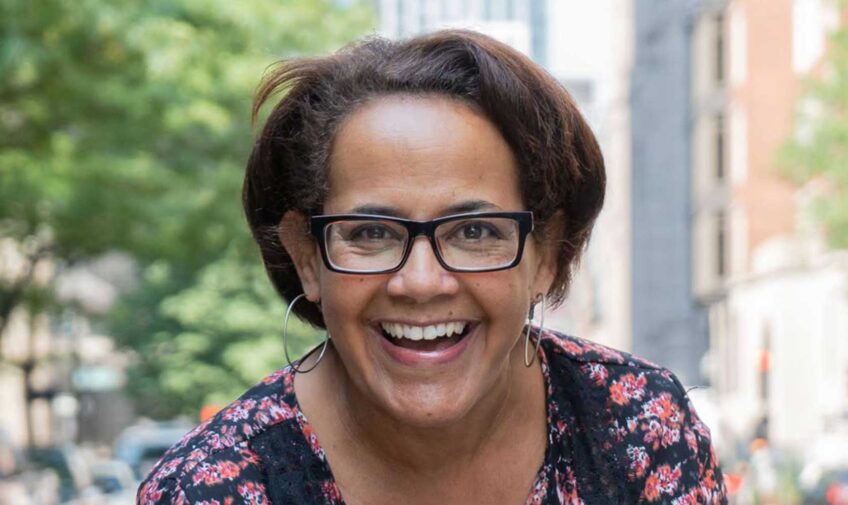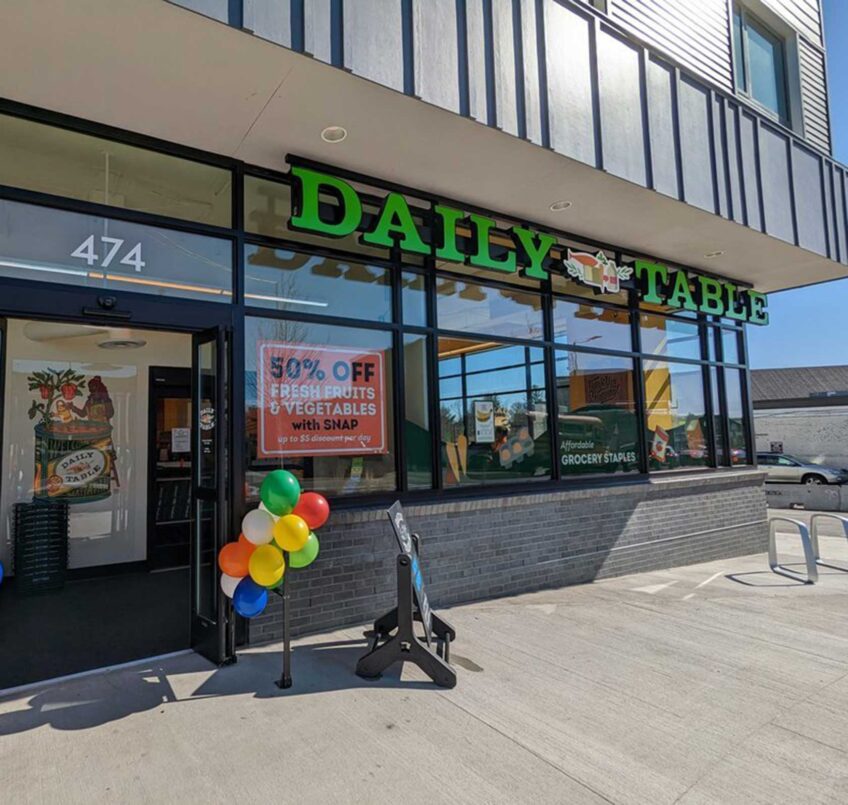Beverley Johnson’s consulting firm builds bridges between developers and community.

Early on in her professional career Beverley Johnson, president and founder of Mattapan-based, real estate and urban planning consulting firm Bevco Associates INC., made two decisions that would shape the course of her working life — she would do something she had a passion for and she would not spend all day in the office just running a business. She wanted to be out working with clients.
Two decades after starting Bevco, even a quick reflection on her track record confirms she has done exactly what she has wanted to do.
While the real estate and development world has a variety of businesses that feed off the often multi-million dollar projects, Bevco operates in a small sliver of the business between the big project developers and the neighborhoods that are impacted by the new developments.
A former employee in the Washington, D.C., office of the U.S. Department of Housing and Urban Development and the Boston Redevelopment Authority, Johnson has a passion for work that helps stabilize neighborhoods through economic and physical revitalization. With many real estate development projects this can be a valuable outcome — if someone makes sure it happens.
For decades in Boston, Johnson has been one of those people.
At the end of the day, project developers would prefer to makes sure their projects have a positive impact on the neighborhoods they are going into. For the skeptics of such a notion, this is important if only to speed up the permitting process and ensure that the projects get approved.
But Johnson sees an opportunity to make sure the neighborhoods have their voices heard.
Bevco provides consulting services on a number of specific aspects of the urban planning process, including project management, public land conveyance, permitting and zoning. However, a large part of its work is also in community engagement.
Large Projects
On the urban planning side, Bevco has worked on a number of large projects, including the Crosstown Center project in Boston and the development of the former Boston State Hospital site in Mattapan.
Crosstown Center is an office, hotel and retail complex on the corner of Massachusetts Avenue and Melnea Cass Boulevard adjacent to Boston’s South End. The development is located within a federally-designated Empowerment Zone and area business can benefit from city, state and federal tax benefits from operating in the neighborhood.
Development on the former Boston State Hospital site in Mattapan has been ongoing for 16 years. The site has been converted from 175 acres of developable land in 1995 to only 14 acres remaining left to build on today. Developers of the project have all been chosen through an established community group from the neighborhood working in conjunction with the city. The Boston State Community Trust has also been established to provide grants to community organizations funded by the redevelopment of the site.
On the strictly community engagement front, Bevco has a long-standing working relationship with the MBTA. The MBTA calls on Johnson to be part of the large public engagement efforts the state transportation agency makes on every new development or construction.
Bevco has worked on the MBTA green line extension, silver line projects, Ashmont Station, Shawmut Station and Fields Corner Station.
So what does it take for a development to truly work for the neighborhood?
Johnson’s view is it takes integrity in the development process, transparency at all stages of the project and constant communication with the community. You have to find out what the neighborhood will embrace and make sure they get it. At the end of the day, in today’s urban environments, everyone wants to hear that development will lead to economic improvement so illustrating the potential for this is crucial.
“I really have a good understanding of what the community is looking for in terms of benefits — I talk to them,” Johnson said. “Then I work as a go between.”
With all the big projects Bevco has lined up over the years and with a strong reputation from the success of these projects, Johnson admits that she could easily have expanded the company, but she prefers to keep it small. Essentially, Bevco is Johnson and some occasional outside consultants she hires on a contract basis if she needs them.
For her that is OK, she loves being involved out in the streets on a daily basis.
“I am not really interested in managing a staff that goes out and does the work while I go out and generate more work. It is just not something that is that interesting to me. I want to be on the front lines,” she said.
Is she leaving money on the table by not adding more staff and taking more projects? Probably, but she doesn’t mind.
“Even though I am not rich, I am rich in experience and rich in the passion in terms of being able to empower people and empower communities,” she said.
More to Offer
Johnson grew up in Washington D.C. and attended the University of Maryland. Even though her academic degree is in business and management, she got into housing while working for HUD in the mid-1980s.
A former boss at HUD took a job with the BRA and recruited Johnson to come up to Boston and join the city agency.
She made the move and worked for the BRA from 1988 to 1994 serving as deputy director and then a department head.
While she credits the BRA for her expertise in urban planning, land use and the impact of development on communities, she left because she felt like she hit her ceiling and she knew she had more to offer.
“I decided to pursue my own business because technically I had gone as far as I could go at the BRA other than being appointed director,” said Johnson. “I was more interested in working side by side with neighborhood developers who are trying to improve the quality of life.”
She also knew she had the reputation in Boston’s development world from her time at the BRA and the contacts to start her own firm. It was a risky move, but she was willing to take it and doesn’t have a single regret since starting Bevco in 1994.
Earlier this year, Johnson became president and chairwoman of the board of the Massachusetts Minority Contractors Association. She will lead the association for a two-year term.
The association, which was started in 2007, works to develop business opportunities for minority, women and small businesses in the construction industry, as well as professional trades that support the industry including architects, attorneys and accountants.
It represents over 100 minority and women-owned businesses in the state and provides its members with advocacy, education, training and development support. The overall goal for the association is to increase minority participation and contracting opportunities in the private and public sector.
MMCA programs include the Boston Pilot Program, a joint venture with the Massachusetts Association of Community Development Corporations which has generated $39 million in Community Development Corporation projects for minority and women-owned business enterprises. The MMCA also sits on various State Oversight Boards, working with quasi-state agencies, such as the Division of Capital Asset Management and Maintenance, the Massachusetts Department of Transportation, the Massachusetts Port Authority, the Massachusetts Diversity Coalition and the Massachusetts Gaming Commission to help increase minority and women-owned business participation on public contracts.
Johnson has worked with the association through her work at Bevco and, prior to that, at the BRA.
MMCA leaders, past and present, have praised the appointment of Johnson.
“I am pleased to pass the baton to Ms. Johnson, because over the years she has emerged as a strong advocate for generating the level of business opportunities that will increase and sustain the capacity of minority-owned firms,” former MMCA president Jesse Jeter stated. “Ms. Johnson’s experience in the public and private sector brings a balanced perspective to the table, along with a unique ability to build bridges with public agencies and private developers that will serve our members well.”






